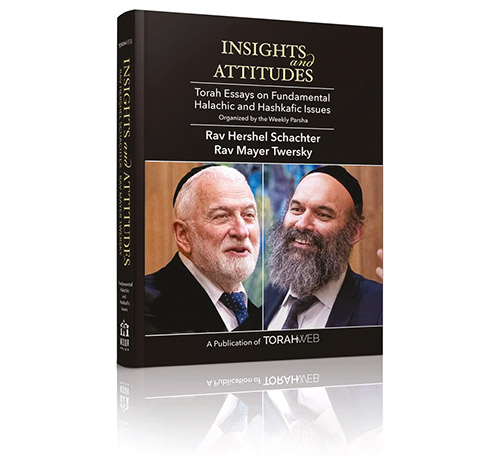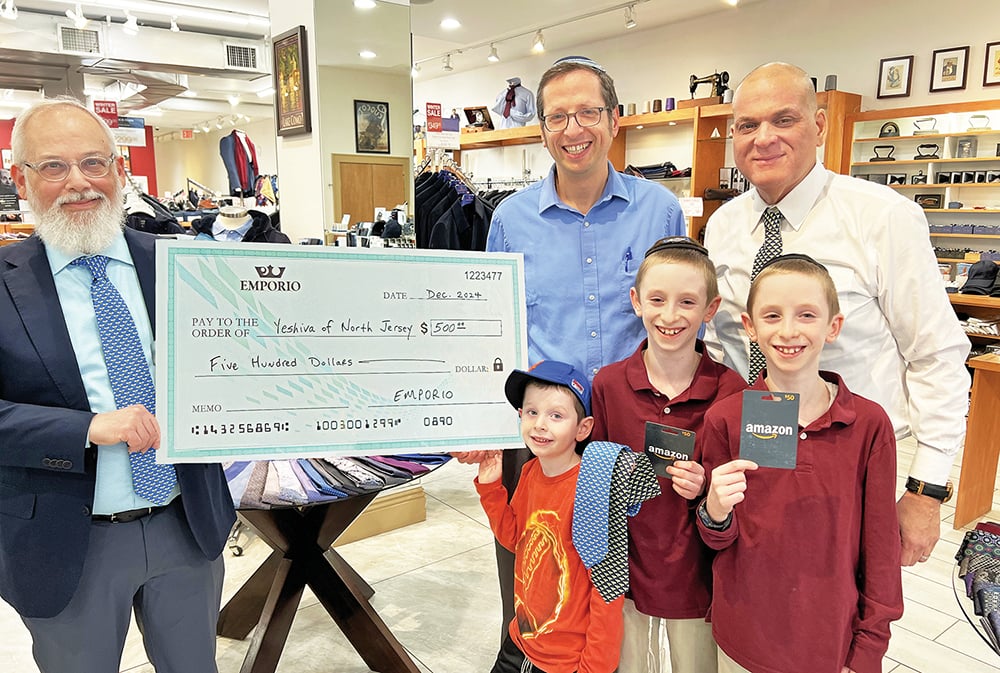
Editor’s note: This series is reprinted with permission from “Insights & Attitudes: Torah Essays on Fundamental Halachic and Hashkafic Issues,” a publication of TorahWeb.org. The book contains multiple articles, organized by parsha, by Rabbi Hershel Schachter and Rabbi Mayer Twersky.
The Mishna (Pesachim 116a) records the observance of the mitzva of סיפור יציאת מצרים on the first night of Pesach. “ארמי אובד אבי” (normally recited in connection with the bringing of bikkurim) is recited, and the comments of the Torah Shebe’al Peh are interspersed between the various phrases of the several pesukim.
Commenting on the pasuk, ונצעק אל ה’ אלקי אבתינו וישמע ה׳ את קלנו — “and we cried out in prayer to our God and He listened to our prayers…” (Devarim 26:7), we quote the pasuk from this week’s parasha,
ויהי בימים הרבים ההם וימת מלך מצרים ויאנחו בני ישראל מן העבדה ויזעקו ותעל שועתם אל האלקים מן העבדה
— “And it came to pass that the King of Egypt died, and the Jewish people cried out from their labor, and their cries went up to God from their labor” (Shemos 2:23). This pasuk from Parashas Shemos is cited in order to better understand the meaning of the pasuk in Mikra Bikkurim. When we say that “we called out to God in prayer and that He answered our prayers,” the Torah Shebe’al Peh comments that this is not to be taken literally! The Jewish people never really prayed! God, in His infinite kindness, considered their crying out from their hard labor under the Egyptians as though they had prayed, and this unspoken prayer was answered.
Why should God consider their crying out from pain and agony as though the Jewish people had offered a prayer? It would appear that prayer is so essential and intrinsic to the human soul that we assume that, subconsciously, man would always like to pray. The Rabbis of the Talmud formulated as a halacha (Berachos 21a) that we wish that man would be able to pray all day long.
The Torah tells us (Bereishis 2:5) that during the first five days of creation, nothing was yet growing because it had not yet rained, since man had not yet been brought upon the scene “לעבד את האדמה” — “to work the earth.” Chazal (see Rashi there) understood the expression “to work” – “la’avod” indicates that the absence causing the rain to be held back was man was not yet being present to pray (“avoda shebalev”) for the rain, and God was not going to have it rain until man asked for it! One of the most important roles of man is to pray.
In the opening mishna in Bava Kamma, the Tanna’im list the four basic categories of damages. One of them is entitled “maveh,” and the Rabbis had two differing traditions regarding the meaning of the term. According to one tradition, the expression “maveh” means “the one who prays,” and refers to humans, who apparently were created in order to pray.
Although God is infinite and shoulders the burden of taking care of the entire creation, He created man in His image to enable man to communicate with Him. This is one of the Thirteen Principles of our faith: we believe in prophecy, and included in this principle of prophecy is that we also believe in prayer. We believe that there can be communication between God and man; God has communicated with man by means of prophecy, and man has been given the privilege of communicating with God by means of prayer.
Man’s ability to pray is considered so fundamental and obvious that, according to Ramban (Hasagos to Sefer HaMitzvos, asei #5), it does not need to be included in the listing of the 613 mitzvos. Ramban feels that the obligation to daven daily is only rabbinic, and therefore ought not to be included in the listing of the 613 biblical mitzvos, and that the obligation to pray “in times of great distress,” although biblical in nature, ought also not be counted among the listing of the mitzvos. If one has emuna in the principles of our faith, it is self-evident that he will choose to daven (See Iggeros Moshe, Orach Chaim 2:24).
I remember the scene, over 40 years ago on a Purim, in the middle of the chagiga, when one of the students sang a famous Yiddish folk song. When he reached the line that says that “he must daven because he is a Jew” (“davenen muz er”), Rav Dovid Lifshitz, zt”l, called out, in correction of the lines of the poem, that “he wants” to daven (“davenen vill er”)!
Rabbi Hershel Schachter joined the faculty of Yeshiva University’s Rabbi Isaac Elchanan Theological Seminary in 1967, at the age of 26, the youngest Rosh Yeshiva at RIETS. Since 1971, Rabbi Schachter has been Rosh Kollel in RIETS’ Marcos and Adina Katz Kollel (Institute for Advanced Research in Rabbinics) and also holds the institution’s Nathan and Vivian Fink Distinguished Professorial Chair in Talmud. In addition to his teaching duties, Rabbi Schachter lectures, writes, and serves as a world renowned decisor of Jewish Law.













